AITA for not driving until my overweight friend buckled her seatbelt?
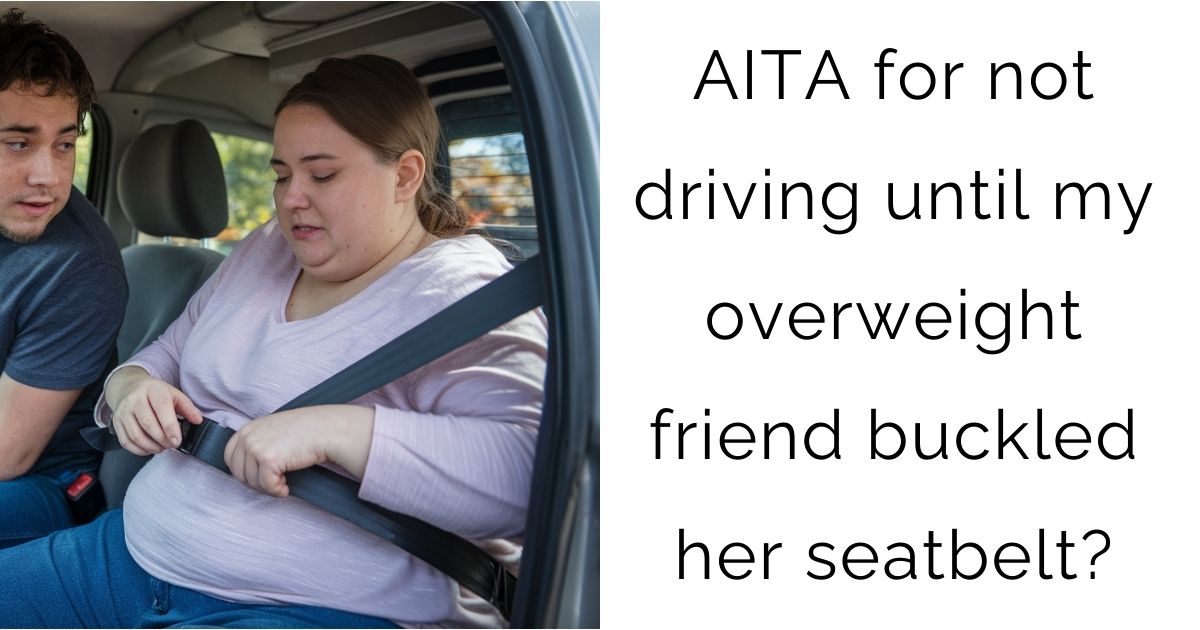
When it comes to car safety, few rules are as universally agreed upon as wearing a seatbelt. Yet, in this story, a simple drive with a friend turns into a delicate situation that raises questions about safety, empathy, and the discomfort of addressing sensitive issues like weight.
A 27-year-old man finds himself in a moral dilemma: should he insist his overweight friend buckle her seatbelt, knowing it embarrasses her, or prioritize her feelings over their safety? Read the original story below:
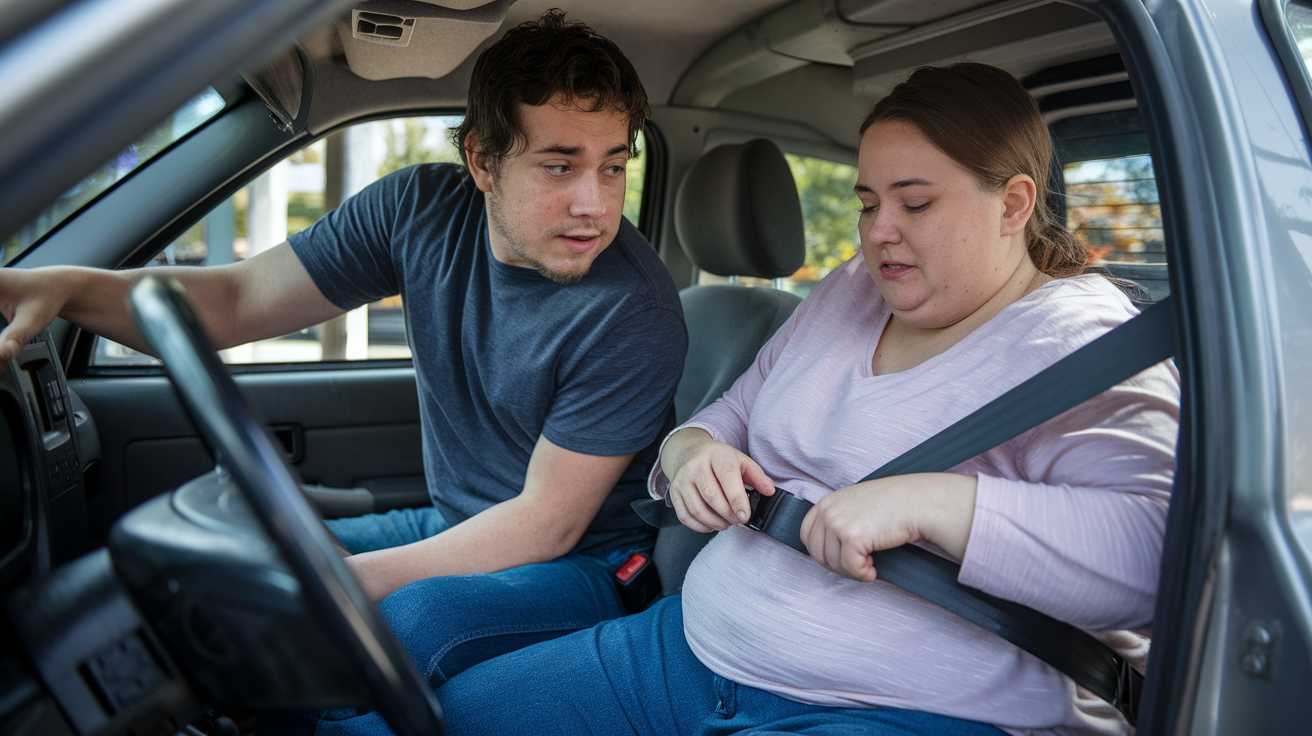
‘AITA for not driving until my overweight friend buckled her seatbelt?’

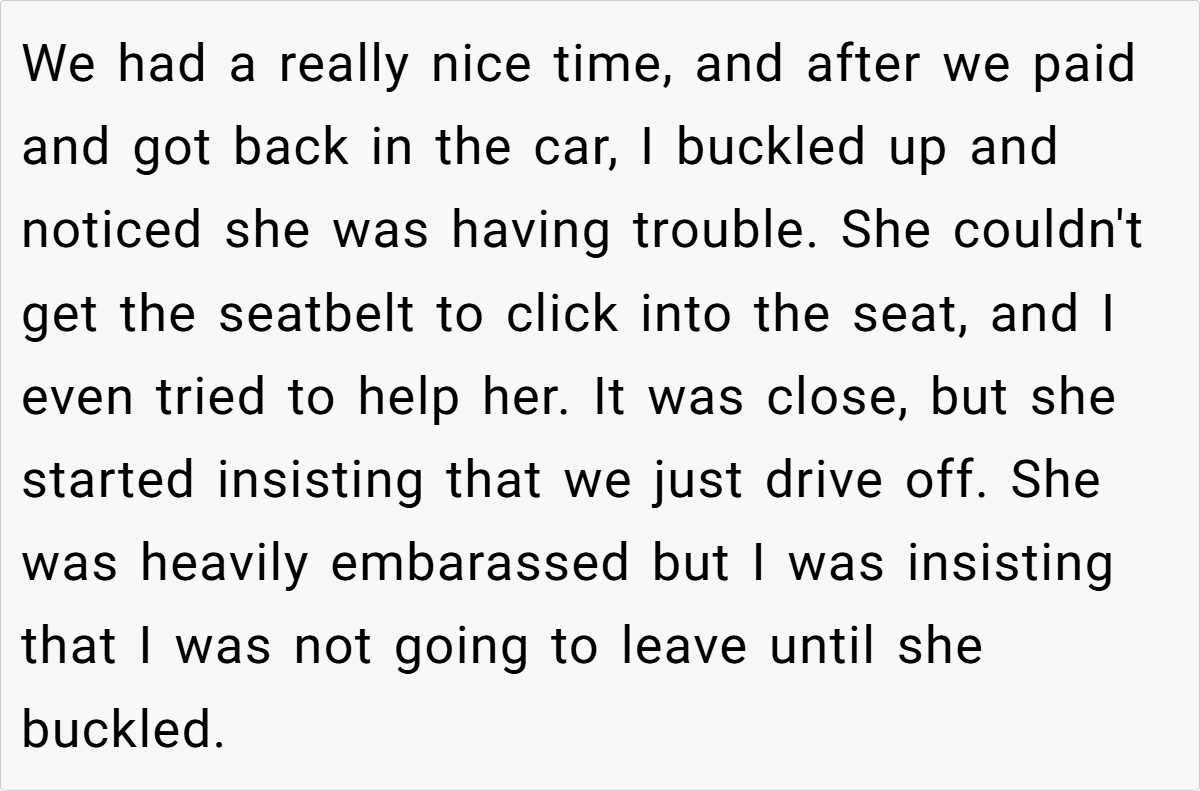
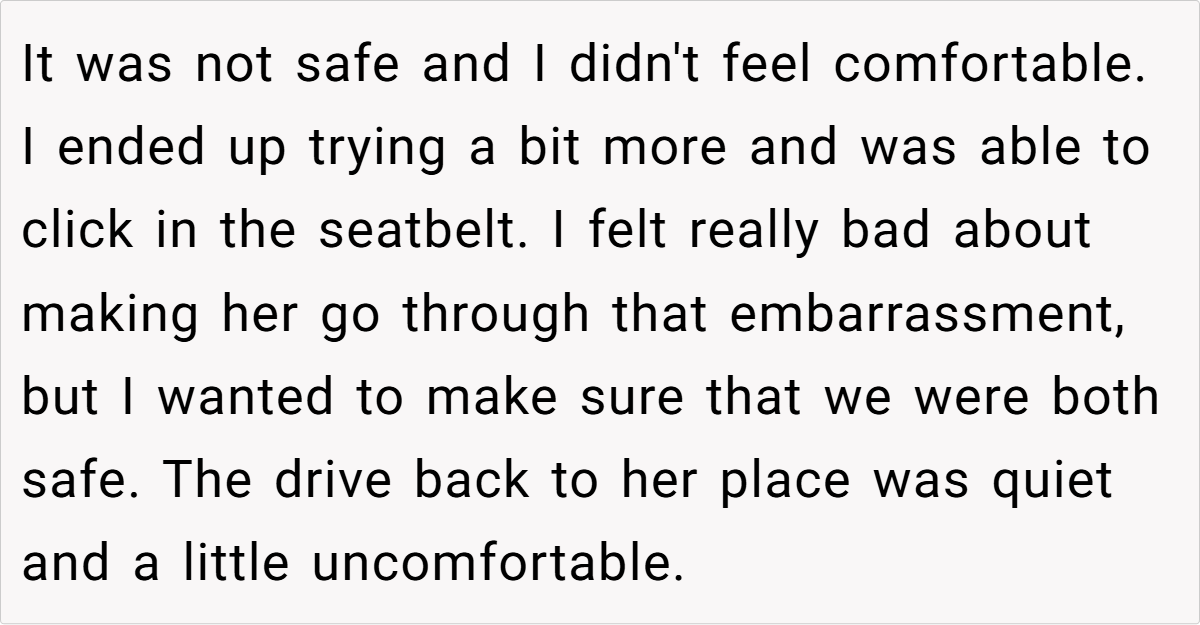
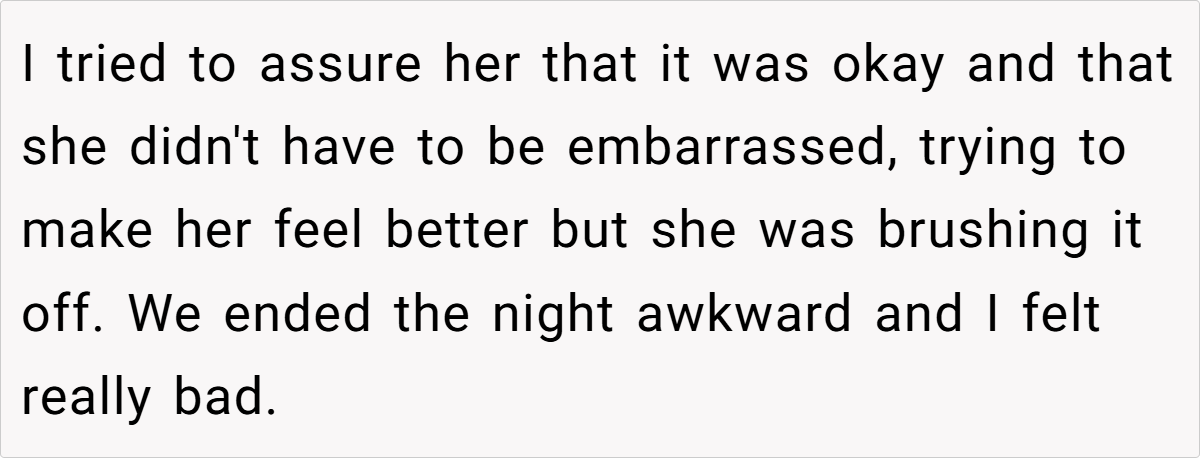


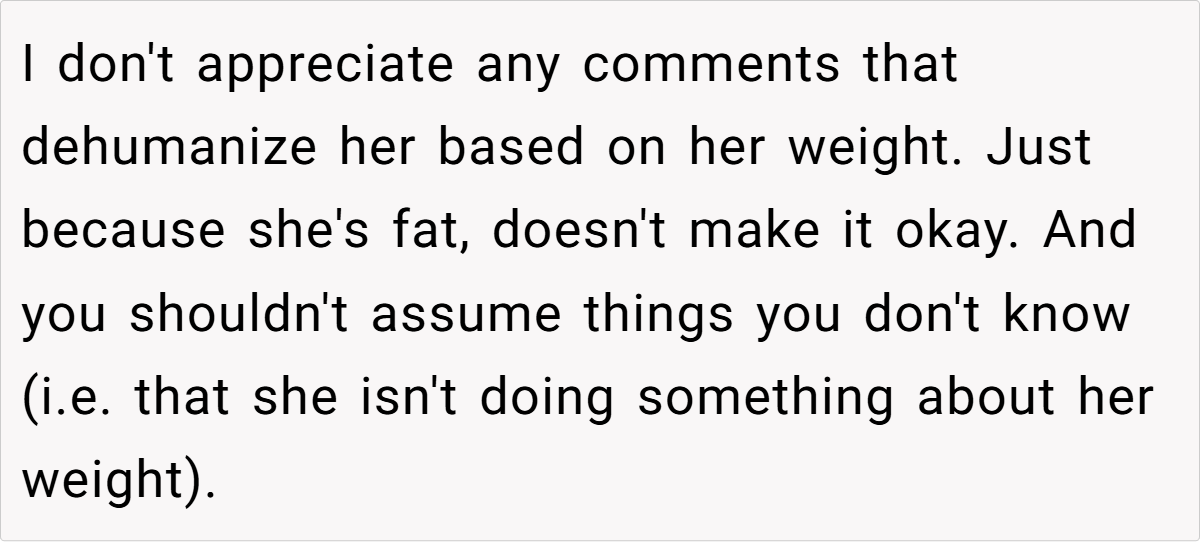
Insisting on seatbelt safety might feel uncomfortable in the moment, but experts agree it’s a non-negotiable. According to the National Highway Traffic Safety Administration (NHTSA), seatbelts reduce the risk of death by 45% for front-seat passengers. Clinical psychologist Dr. Carla Manly explains, “In situations where safety is at stake, it’s important to set firm boundaries with loved ones — even if it risks hurting their feelings. A gentle but unwavering approach shows care, not judgment.”
While OP’s friend may have felt humiliated, her reaction speaks to a larger issue: the intersection of body image and everyday inconveniences. People living in larger bodies often navigate a world not built to accommodate them, which can lead to moments of shame and frustration. However, the responsibility for safety — both personal and shared — remains essential.
One solution, as many commenters suggested, is to keep a seatbelt extender in the car. This small accessory could prevent future discomfort without singling anyone out. It’s a discreet way to support friends without making weight the focus of the interaction.
Here’s the input from the Reddit crowd:
The majority of Reddit commenters agree that the poster is Not the Ahole (NTA). Their insights highlight the importance of safety over temporary embarrassment, with several users sharing personal anecdotes to emphasize the life-saving importance of seatbelts.
Others suggested practical tips, like using a seatbelt extender or adjusting the seat position, as ways to prevent future awkwardness. A few commenters acknowledged the friend’s embarrassment, suggesting that her reaction was understandable but not an excuse to avoid wearing a seatbelt. Overall, the consensus reinforced that prioritizing safety was the right decision.



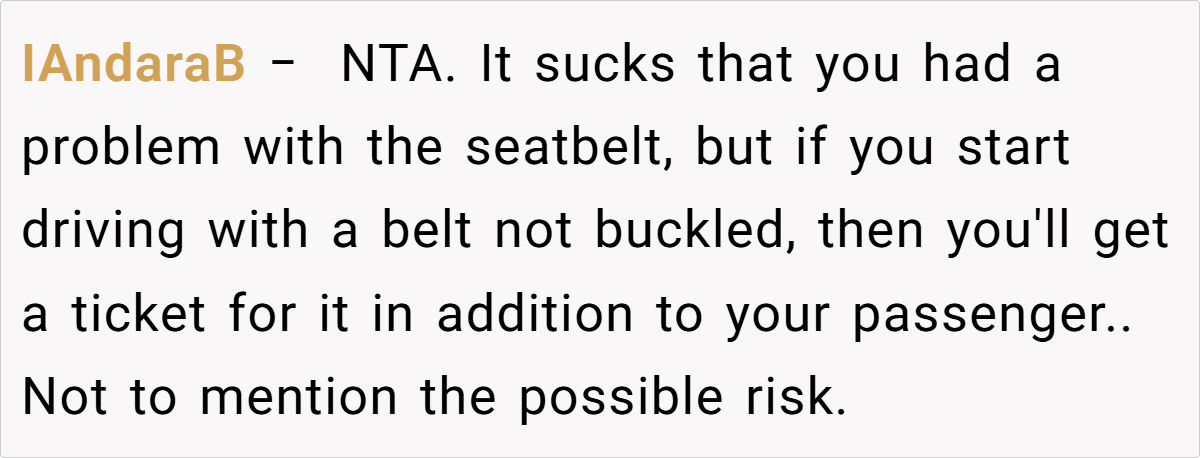
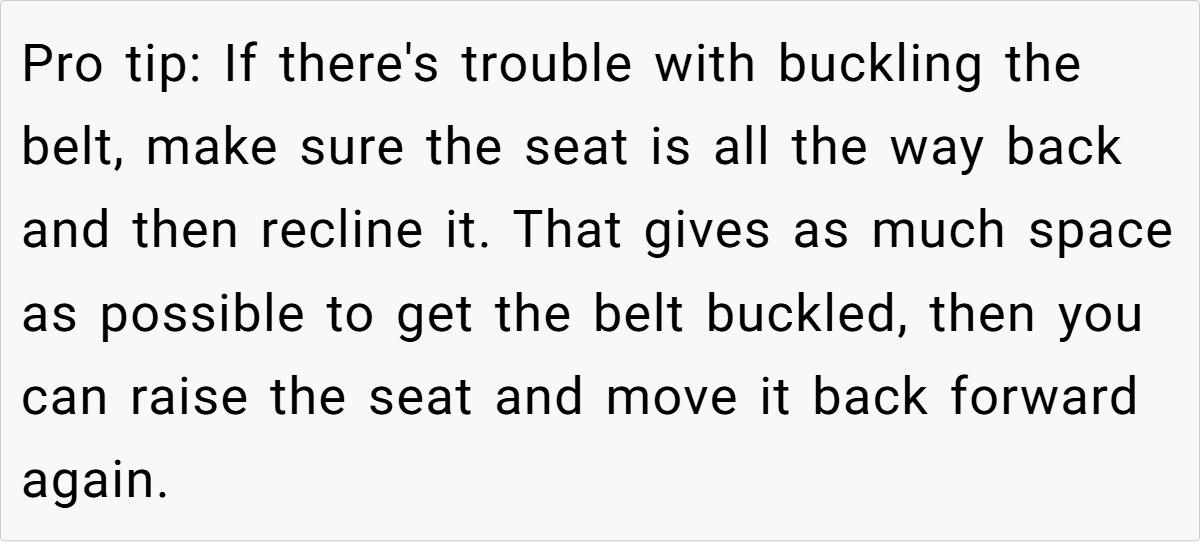
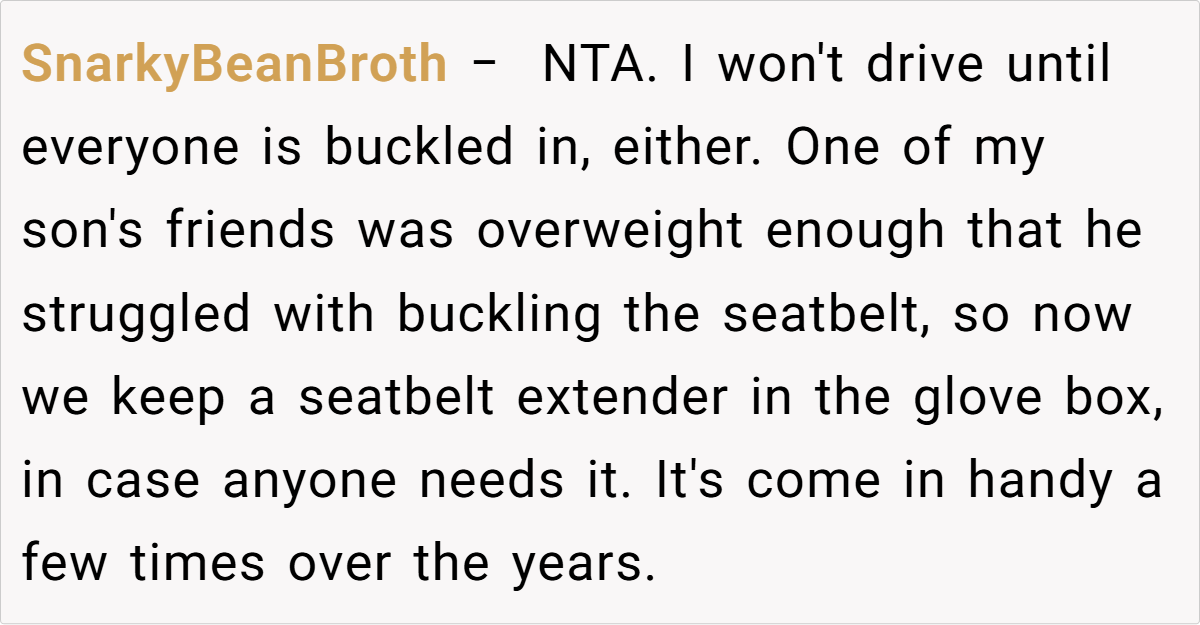
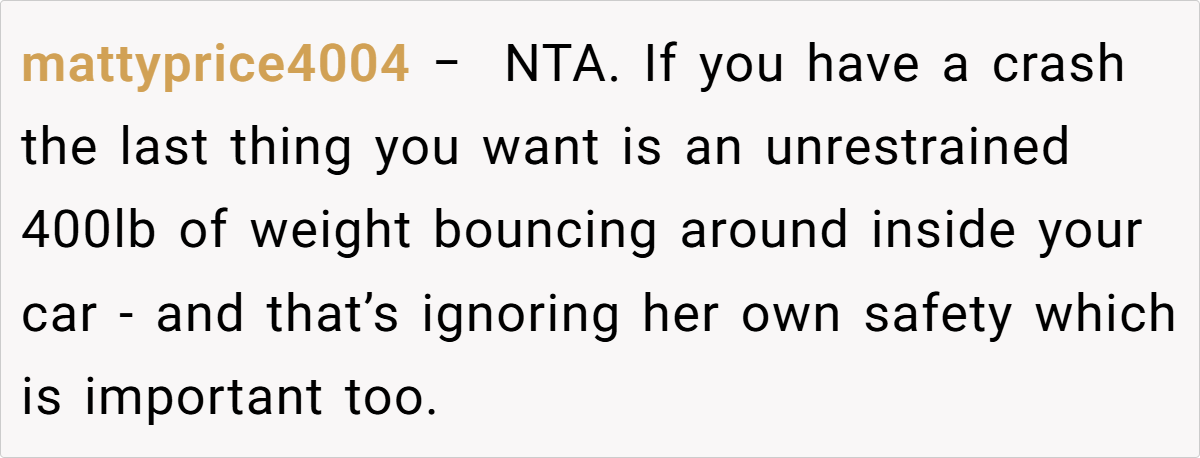
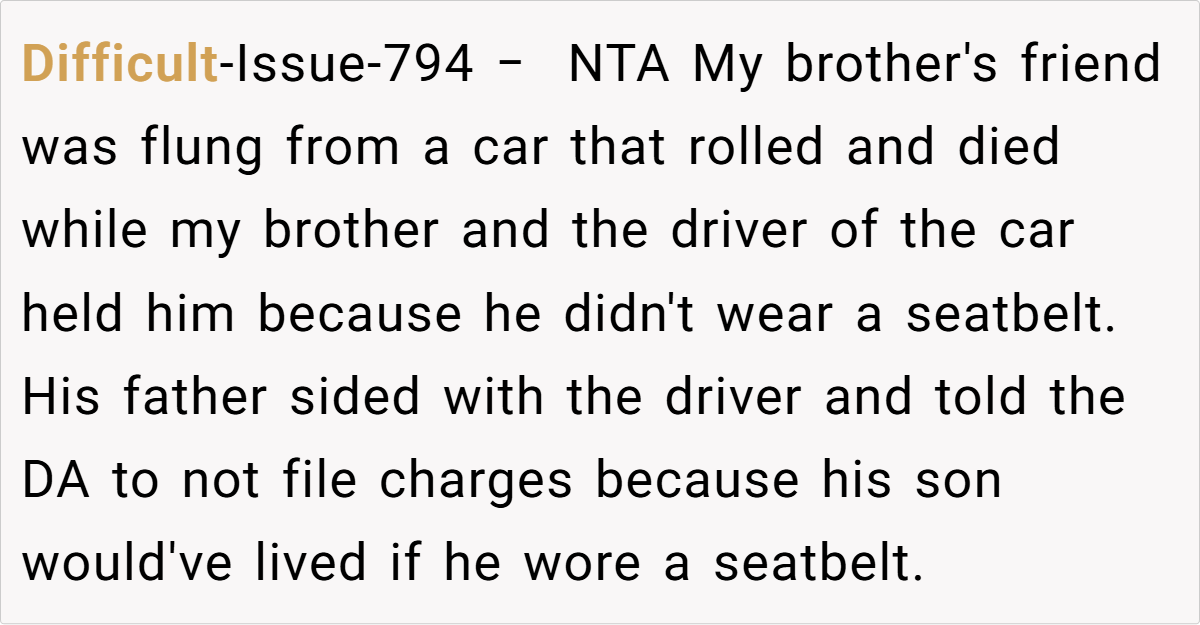
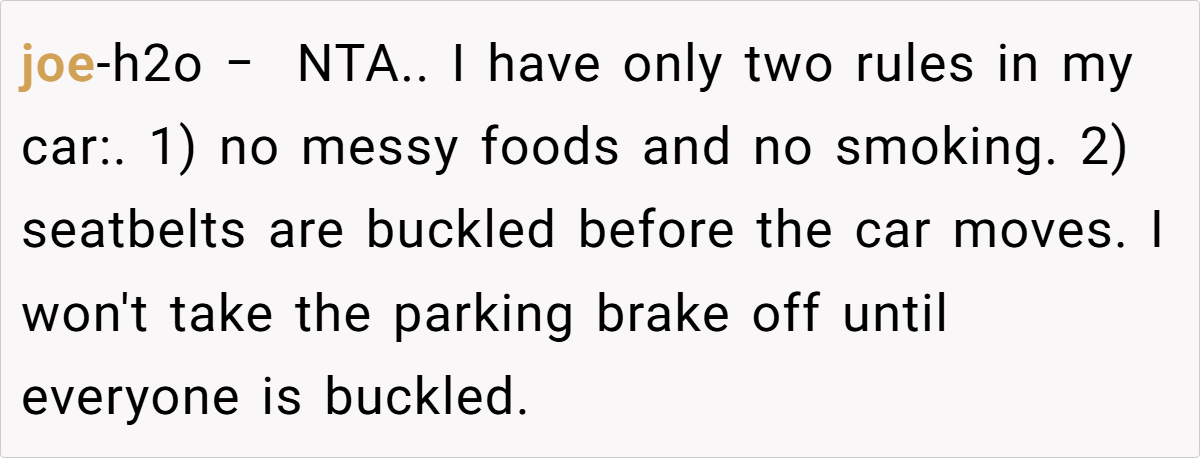
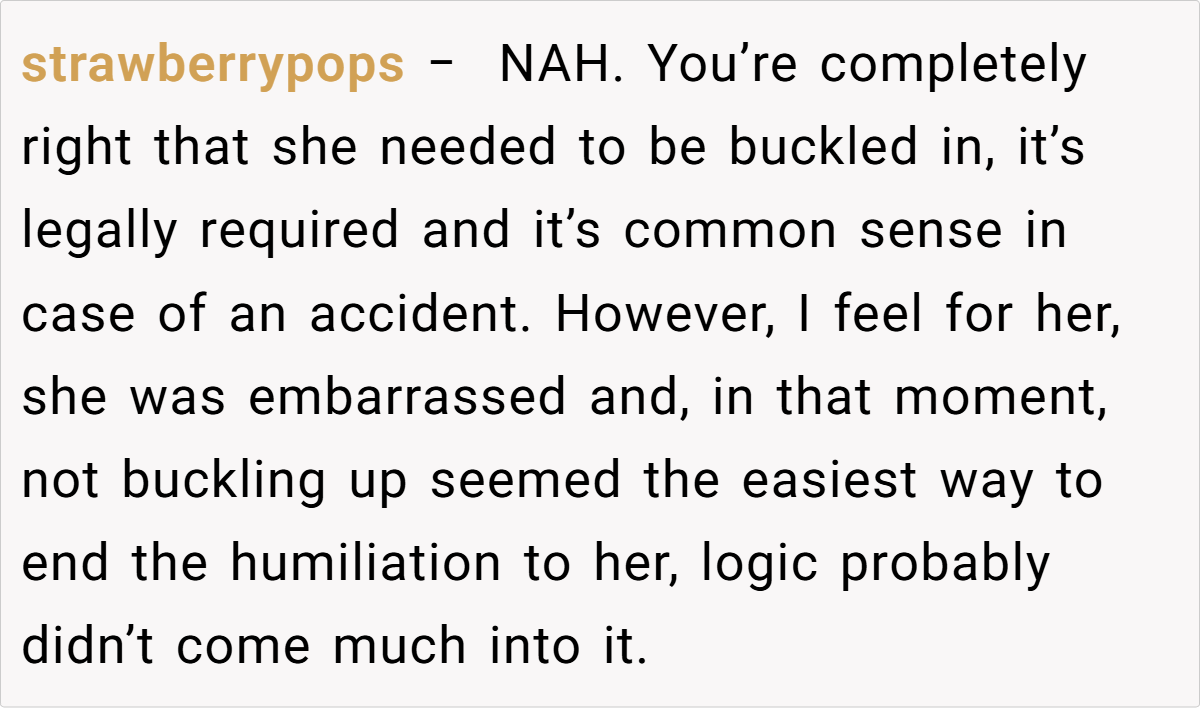

This story is a reminder that sometimes doing the right thing involves discomfort. Prioritizing safety, even when it causes temporary embarrassment, is a testament to true friendship. By approaching such moments with empathy and preparation, we can navigate sensitive situations more gracefully.
What’s your take on this story? Should safety always take precedence, or are there ways to handle such situations without embarrassment? Join the discussion below!

